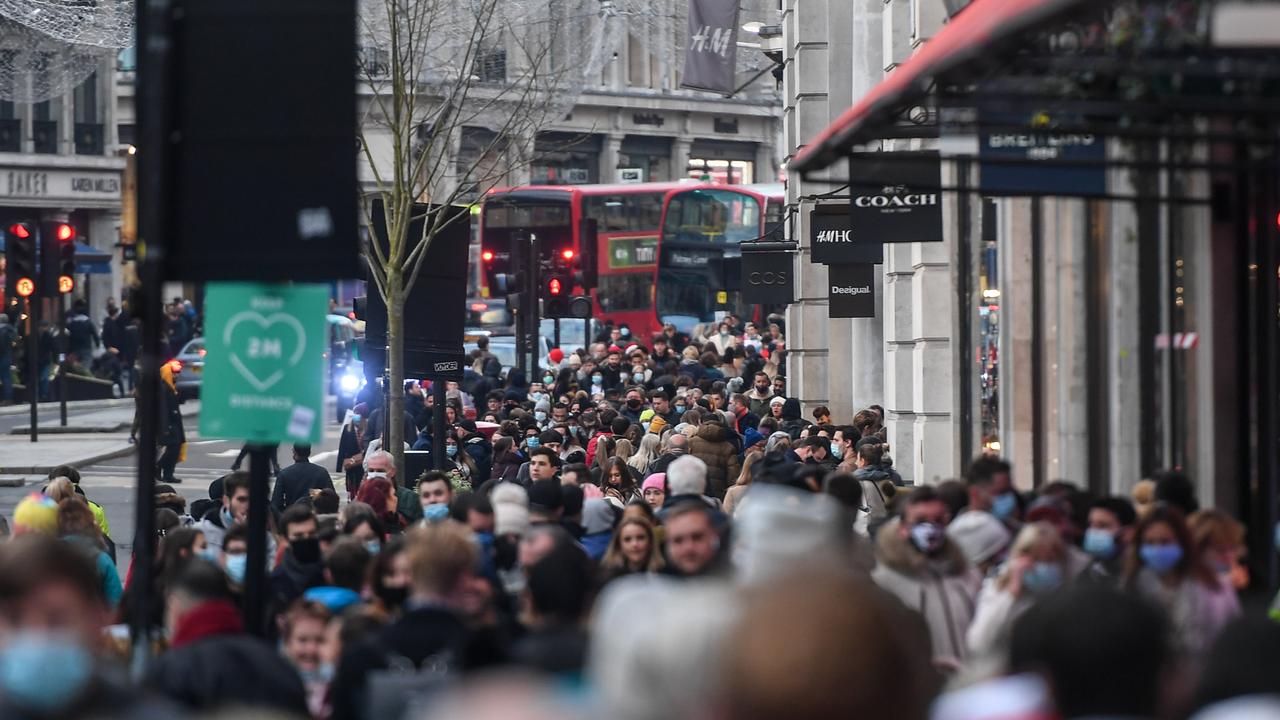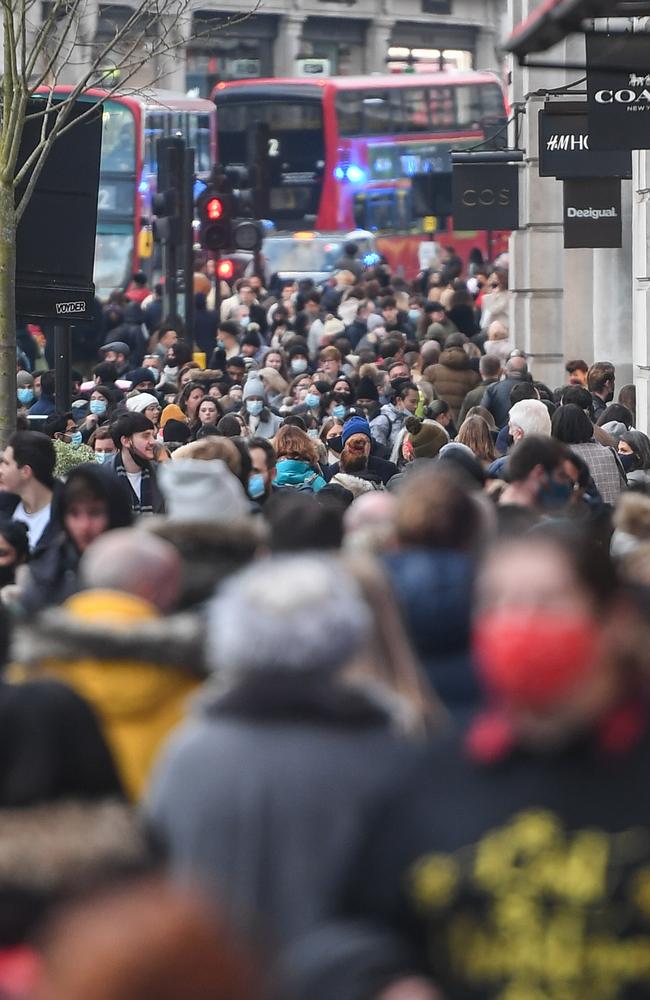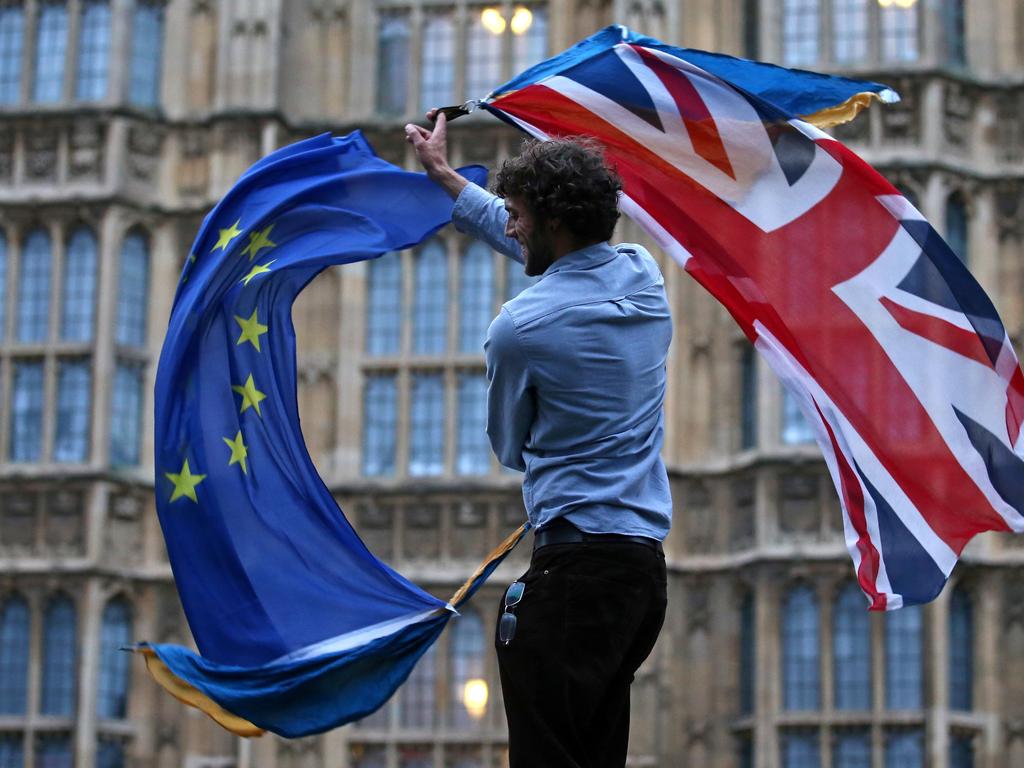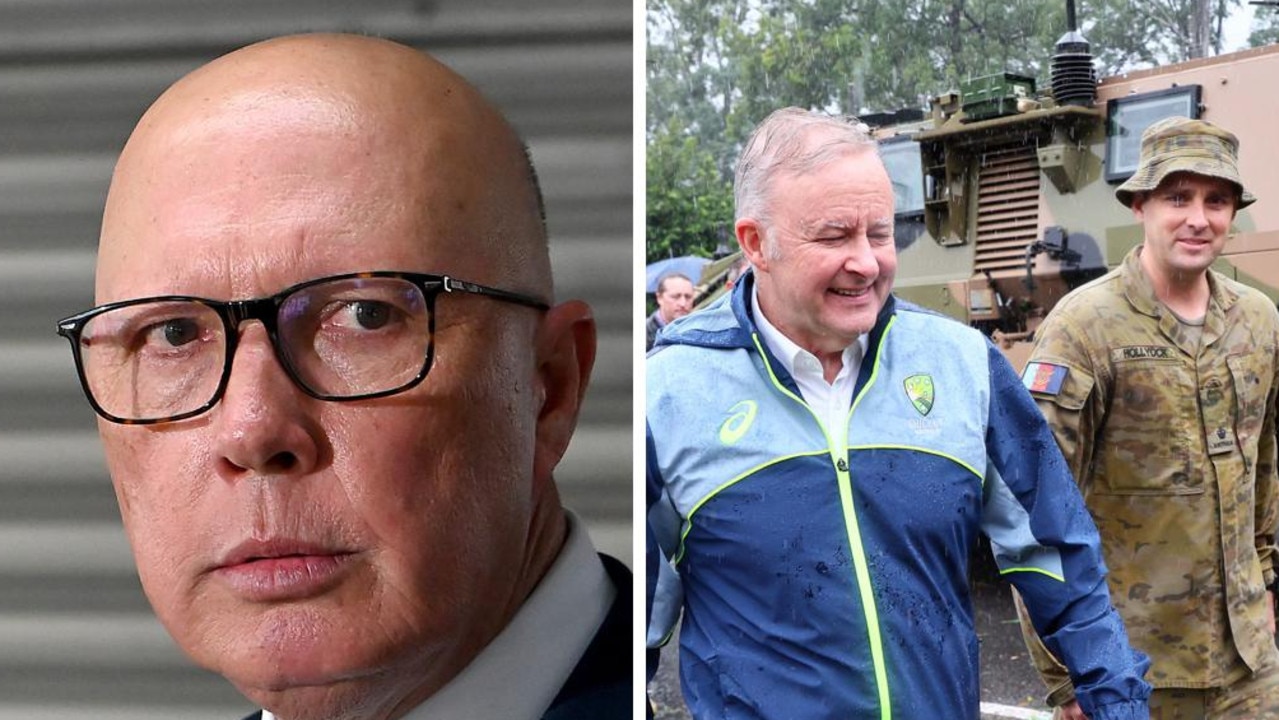UK, Europe could face nightmare New Year with rising virus cases and no-deal Brexit
A perfect storm could see the UK and Europe facing severe pain just after Christmas and New Year, and Australia has been dragged in to the stoush.

The UK and Europe are facing a nightmare Christmas and New Year with rising COVID-19 cases that could explode even further and an increasingly likely “no deal” Brexit that could compound the economic pain of the pandemic.
After a devastating year that has seen hundreds of thousands of deaths and Europe shuttered by the virus, UK and European leaders are on the brink of walking away from Brexit talks.
UK Prime Minister Boris Johnson and EU chief Ursula von der Leyen have set an unofficial deadline of Sunday to see whether its worth the two sides continuing to negotiate over what their future trading relationship could look like.
Britain has officially left the EU following a 2016 Brexit referendum, however it remains in a transition period until midnight on 31 December 2020 while the two sides work out future trade.
But with much of 2020 hijacked by dealing with coronavirus and significant ideological differences remaining, the prospect of no deal is now more likely than not, leaders have warned.
RELATED: UK makes contingency plans for no-deal Brexit
RELATED: Vaccine ‘too late’ to stop spread


On Friday, EU Commission President von der Leyen told European leaders there were “low expectations” a deal would be done. Mr Johnson has also said there is a “strong possibility” of no deal.
Officials have refused to rule out a last minute “turnaround” but huge gaps remain over issues such as fishing rights and the “level playing field” between the two sides. One of the key sticking points is the UK’s ability to make its own rules but still retain tariff-free access to the EU.
“We have repeatedly made clear to our UK partners that the principle of fair competition is a precondition to privileged access to the EU market,” von der Leyen said.
“It is the largest single market in the world and it is only fair that competitors to our own enterprises face the same conditions on our own market.”
Both sides have been quietly working behind the scenes to create contingency plans to avoid the chaos a no-deal exit could lead to.
The EU published a document this week covering “basic connectivity” which could ensure certain air and road services continue for the next six months, as well as fishing rights for UK waters.
Britain has also made plans that could see military plans fly supplies of the Pfizer coronavirus vaccine into the country from a Belgium manufacturing plant if road services are disrupted. Travellers have been warned to renew their passports and may face having to apply for visas to prolong their stay in certain European countries for more than 90 days.

AUSTRALIA PULLED INTO DEBATE
Crashing out of the EU with no deal would mean the UK would revert to trading on World Trade Organisation (WTO) terms with its largest partner.
This would see tariffs slapped on EU goods in the UK and vice versa, meaning price rises for shoppers and red tape at the border that could lead to long processing queues and tail backs with disruption to supply.
For some Brexit supporters, this is a small price to pay for the freedom to “take back control” allowing the UK to set its own rules regarding trade rather than be bound by EU standards.
The UK government has taken to calling WTO terms an “Australian-style” Brexit – in reference to the fact that Australia trades with the EU on WTO terms.
But this ignores the fact that Australia has been working since 2018 to develop a free-trade agreement with Europe, and EU trade accounts for a smaller portion of Australian trade than the EU does for the UK.
On Friday, former Prime Minister Malcolm Turnbull said the UK should “be careful what you wish for” in terms of wanting a deal like Australia.
“Australians would not regard our trade relationship with Europe as being a satisfactory one,” he told the BBC. “There are very big barriers to Australian exports of agricultural products in particular. There’s a lot of friction in the system in terms of services.”
“Be careful what you wish for. Australia’s relationship with the EU is not one from a trade point of view that Britain, I think, would want frankly,” he said.
Tomorrow's paper tonight 📰
— Metro (@MetroUK) December 10, 2020
LET'S PLAY AUSSIE RULES
- Prime Minister warns of strong chance of no deal 🚫
- Brussels ramps up its Brexit measures 🇪🇺#TomorrowsPapersToday pic.twitter.com/NVCP4AvtTj
UK: We want to trade on Australian terms
— James Felton (@JimMFelton) December 11, 2020
Australia: pic.twitter.com/4IzlWHpF8x
PROLONGED ECONOMIC PAIN
For some, the prospect of economic pain is worth the freedom Brexit could provide, however there could hardly be a worse time at which to inflict further disruption on economies reeling from the effects of the COVID-19 pandemic.
This year has seen travel, retail, hospitality and many other industries hit hard by the pandemic, with government borrowing soaring across the UK and Europe.
The UK’s Office for Budget Responsibility (OBR) shows government spending has blown out from an expected GBP55 billion (A$96.2 billion) for April 2020 to April 2021 to GPB394 billion (A$689 billion), making it the highest ever deficit outside war time.
Growth in the UK has also contracted by more than -11 per cent and could be depressed a further -2 per cent under the WTO outlook, the OBR reports.
The Bank of England has said banks are “resilient” to the potential costs but financial services could be disrupted.
“Some market volatility and disruption to financial services, particularly to EU-based clients, could arise,” it warned in a report.
RELATED: Allergic reactions see vaccine critiera swiftly changed
RELATED: Australia cans vaccine project

Meanwhile, Europe is also battling a rise in COVID-19 cases fuelled by the onset of winter that could potentially explode over Christmas as families mix and lockdown-weary residents gather indoors for celebrations.
UK Health Secretary Matt Hancock urged Londoners to “stick by the rules” as virus cases rise across the city and it risks being put into tier three lockdown, despite the prospect of a vaccine available for those who need it most. He also said mass testing will be rolled out to high-school students in London and the southeast, where cases were rising most.
German Chancellor Angela Merkel has been forced to issue her own demands for more restrictions amid a second wave that saw deaths reach nearly 600 per day.
“When mulled wine stands are being built, when waffle stands are being built, that’s not compatible with what we had agreed of only takeaways for food and drinks,” Merkel told parliament.
“I am really sorry … but if we’re paying the price of death tolls at 590 people daily then that’s, in my view, not acceptable.”
Spain is also facing up to the realisation that more than 45,000 people died of COVID-19 between March and May when hospitals were overrun. This takes the national death toll up to more than 65,000 making it the highest in Europe.




